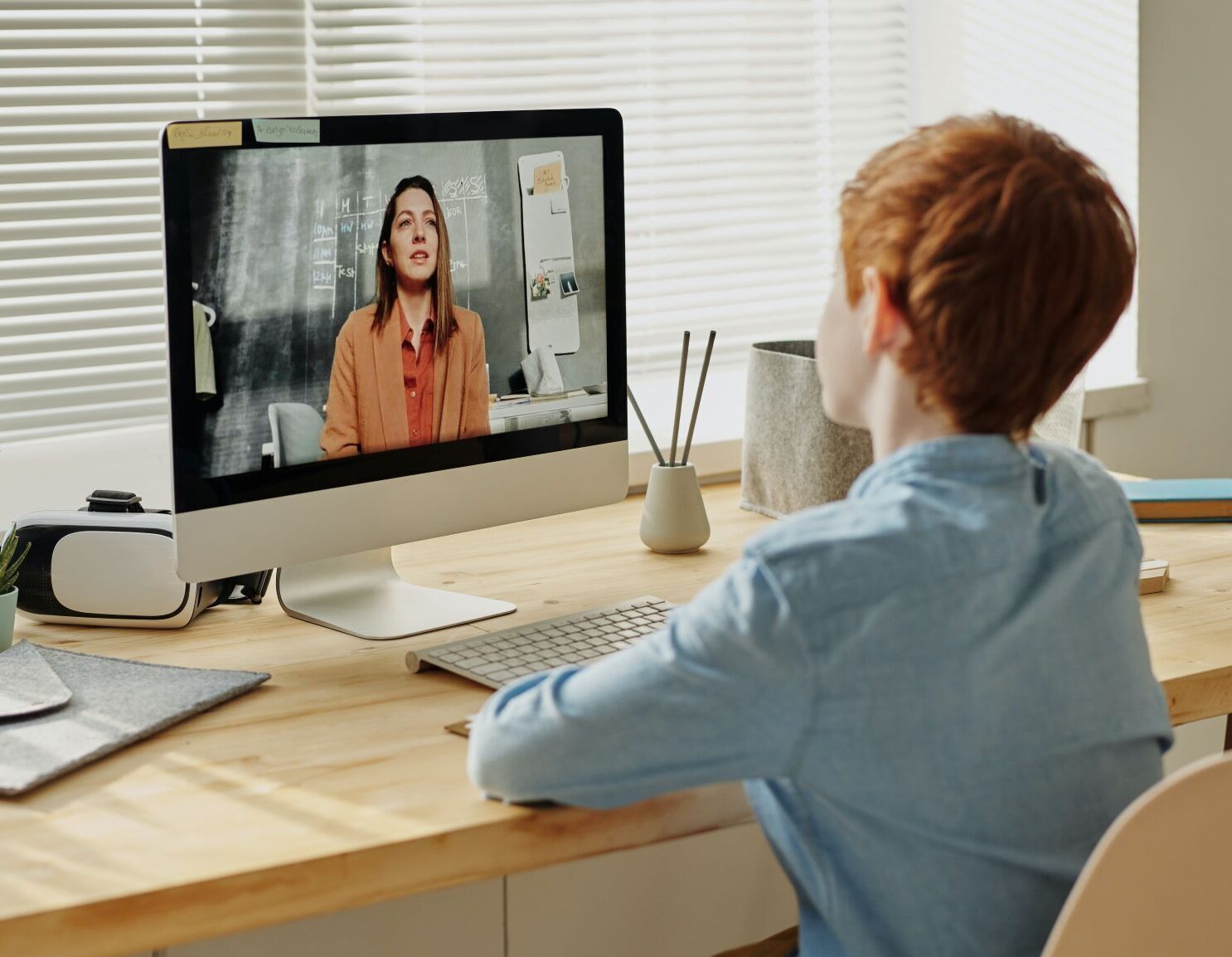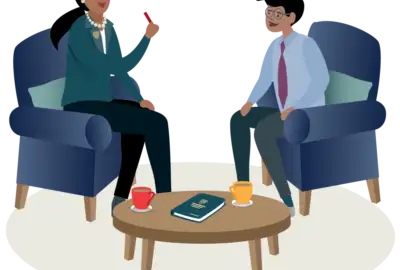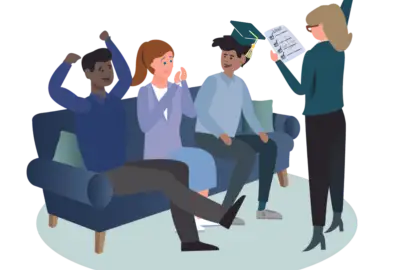Expert Insights
School Entrance Interview Preparation with Brodie Bibby
Published 11th September 2020

As a new school term starts and children go back into classrooms at last, we know that many children will also be well into the process of applying for new schools. We took the opportunity to have a chat with Brodie Bibby - one of our consultants and an expert in interview preparation - to get the inside scoop on interviews for school entrance. We’re glad we did; he emphasised both the value of thinking ahead and clearly laid out what our experts can bring to the table.
It’s easy to see why Brodie does so well at preparing children for interviews: he is engaging company (even over Zoom) and approaches every discussion with real zest. The wallpaper behind him is made up of old maps, an appropriate visual metaphor for his well-travelled career. Having been a teacher for over thirty years, he has worked in the state and private sector and as both a Head and Deputy Head (the latter position at Westminster Under). He has taught History, Sport and Drama, and also taught for a while in Kenya where he even found time to DJ (under the name ‘Powercut’).
Now he works independently to give students the confidence they need to take school interviews in their stride. Calling attention to the lack of emphasis in schools on soft skills, he argues that there’s not enough room for giving opinions, working on leadership, or sharing ideas in conversation. One of the big benefits of tuition and consultations, he makes clear, is to offer precisely this kind of space.
One of the first topics we discussed was the role of the interview in the school entrance process. Brodie emphasises that, while in the past schools may have just used interviews as a way to decide on ‘borderline’ cases (placing a great emphasis on exams and assessments), there’s now a greater emphasis on the interview for all students. Indeed, this is a trend he suspects could intensify throughout Covid-19; using online interviews means that schools are able to put on more interviews altogether.
Given this, the first task is to help children realise that the interviews are important and that it is an opportunity for them to show the best sides of themselves. Many children, he points out, don’t initially understand what an interview is and why it matters. Consultants can make this clear in a gentle, optimistic way, which (vitally) doesn’t place undue pressure on the child’s shoulders. He emphasises that, unlike parents, consultants have the necessary distance to be able to get this point across in a way children really take on board.
As to what the interview itself might involve, Brodie emphasises how every school can take a different approach. “Expect the unexpected,” he advises, and notes how it could be anything from academic discussion, something more informal and creative, to talking about images, or solving puzzles. Creative and flexible preparation is crucial, which led us on to our next topic.
What can parents do themselves to start the process of preparing their children for interviews? Firstly, Brodie makes clear that it is crucial to build confidence, not destroy it. By framing discussions in a positive way and emphasising opportunity, children are much more likely to respond than if they are critiqued or put under pressure.
Beyond that, parents can involve the whole family in interesting discussions at the dinner table, encourage their child to read, ask them their opinions, and engage them in debates. Children should know that it’s fine to have an opinion and share it but then be prepared to respond to questions and know how to back themselves up. Brodie does not recommend simply going through a set of 150 pre-made questions. This not only risks the children losing interest, it also does not emphasise the creativity and flexibility they’ll really need to shine.
In the current environment, Brodie also insists on the importance of creating a quiet space where children can sit down and speak on Zoom without interruptions and know that they should give it their full attention. He gives examples of recent sessions he had run where there were dogs and siblings fighting in the background! Familiarising children with online learning through a tutor or consultant can take this kind of preparation further and ensure that children stand out during online interviews for all the right reasons.
What about the consultant or a tutor’s role? Brodie explains how he provides children with the building blocks to approach questions in a way which will give them lots to say and stand out. He often uses the image of a ripple in the water to get children thinking. Quite frequently school interviews (especially at 11+) will involve a question on current events and the ripple method is a way for children to think beyond themselves. For example, if a child is asked about the impacts of the coronavirus, they could start with their own experience (as most children would), but then work out in ripples. If that’s the impact on me, then what’s the impact on my school? If that’s the impact there, what’s the impact on the country? And is this happening in other countries too?
Rather than providing stock answers, Brodie is all about giving children the tools they need to come up with their own answers which reflect their unique personalities. That’s why he also likes to use “Would you rather?” questions, which bring up some funny responses. As a recent response to the question “Would you rather have a bath in jelly or in baked beans?” one child told him: “Definitely the jelly, as it would feel nice on my bum!” It’s probably for the best we got that answer out of the way in practice!
Brodie’s passion and expertise were evident throughout our discussion. He was overflowing with tips, tricks, and anecdotes, and we look forward to sitting down with him again to hear even more!
If you’d like to arrange a consultation with Brodie, or are interested in any other of our services, please don’t hesitate to get in touch.












